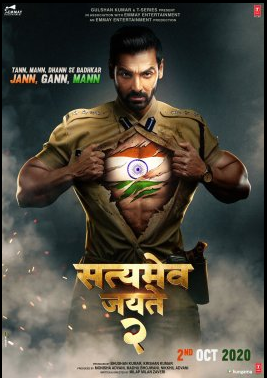Where are the political songs in Hindi films?
“Don’t be selfish. Don’t be selfish. Don’t be selfish.“
(“Where there is no throne or crown/Where no one has rights/That is not true independence”).
This fiery line by Sahil Ludhianvi in Vasant Joglekar’s 1963 film Aaj Aur Kal has stood the test of time. It tells the story of an oppressive king fighting local elections against a young social activist who wants to rid the country of crony capitalism and feudalism. Not only is it used as a slogan in the film, it also serves as a reminder of a time when cinema gave a voice to the masses and held up a harsh mirror to those in power. As the film’s campaign song put it:What does the future hold for Gina? “Workers have the right to work. Why should there be restrictions on life? Living is the right of every human being.”
As the seventh and final round of India’s Lok Sabha elections approaches on June 1, and various political parties blast out noisy, autotuned campaign songs, it’s hard not to look back at Ludhianvi’s song, which harkens back to a time when Hindi film songs sought to uphold democratic principles by speaking about injustice, when writers created socially conscious songs – songs that centred around constitutional rights, elections, political awareness and justice.
Political themes in films of the 1950s and early 1960s began as an extension of post-Independence Nehru ideology, which included ideas of socialism, secularism and industrialization. Films like Naya Daur (1957) and songs like “Saathi Haath Badhana” examined the costs of development.

Around the same time, Kaifi Azmi also posed a pointed question in Pyaasa (1957):You must be thinking about youThe 60s saw two wars, the deaths of two prime ministers (Jawaharlal Nehru and Lal Bahadur Shastri), the rise of Indira Gandhi, the rise of other parties, and the fragmentation of the Congress after its declining majority in the 1967 elections. All these provided interesting material for poetry and song lyrics about elections.
The roaring ’70s saw a resurgence of “election” songs in movies. Mare Apne (1971), which was Gulzar’s directorial debut, explored themes such as student politics, unemployment and corrupt politicians.Haar chal teek tak hai‘ has the lyrics: “The air is pure in the country… even murder is permissible. / With your blessing, all will be well. Tapan Sinha’s Zindagi Zindagi (1972) has the line: “First find out who is honest and who is a liar, then vote.” Kishore Kumar sang Anand Bakshi and R. D. Burman’s crisp “He’s a liar, don’t vote for him” in the film Namak Haram (1973). These songs not only energized voters and were non-partisan, but also offered a glimpse into the politics of the lyricist and sometimes the filmmaker.

The film’s music was directly influenced by the labour unrest that followed the 1975 Emergency. Take for example Gulzar’s line in Aandhi (1975), “Salaam keejiye, aali janaab aaye hain, ye paanch saalo ka dene hisaab aaye hain.” In the film, politician Aarti Devi (based on Indira Gandhi) walks the streets campaigning. Filled with biting satire, this qawwali includes the lines:Those who received the ballot have received the ballot. / Those who received the ballot have received the ballot.“They’ll buy our votes in exchange for food/They’ll cover up the naked bodies and bury them.”
Political songs became less and less common in later years, but they appeared almost spontaneously, many of them by Gulzar. His final film as a director, Hu Tu Tu (1999), included Ghapla Hai, which dealt with government corruption, and Bandobast hai, which dealt with the vulnerability of farmers and their struggle for rights.
Going forward, there is less room for irreverent, socially conscious political songs in films, especially in an era when dissent is perceived as rebellion. One final such song that springs to mind is Zoya Akhtar’s Gully Boy (2019), which features a powerful vocal performance by rapper Divine.If you vote for your daughter, she will be pure.“How can the country be cleansed if their motives are tainted/They get voted out, become something special, then disappear for a year?”
In recent years, Hindi films have come under attack in a polarized nation where criticism of the government has been misconstrued as “disloyalty.”“Chinooru Arab Hamara/Rene ko ghar nahi, saarah Hindustan Hamara” — LudhianviWhat do you think about your criticism of Nehru socialism, which has never been censored or asked to be toned down?
suanshu.khurana@expressindia.com
© Indian Express Ltd.
First uploaded: May 29, 2024 8:04 AM




